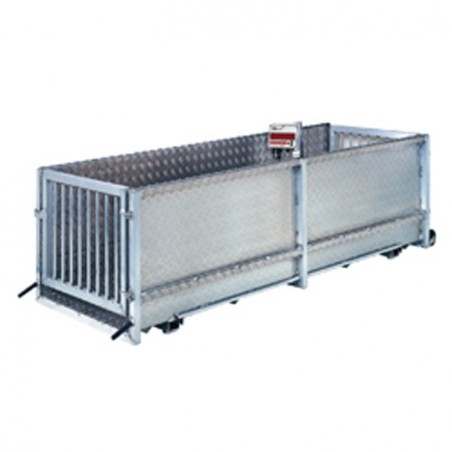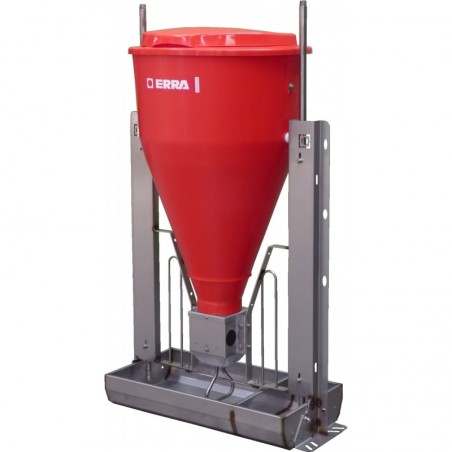Dietary electrolyte balance (dEB), under most circumstances, is defined as milliequivalents (mEq) of sodium, potassium and chloride ions. Generally, a positive dEB level can optimize pigs’ growth, but a negative dEB may reduce feed intake. The optimal dEB for pigs is not well stablished as in the literature a range of -35 to 250 mEq/kg has been reported with similar results. The objective of this experiment, therefore, was to investigate the effects of different levels of dEB. A total of 160 weanling pigs ((Duroc × Landrace) × Yorkshire; average initial body weight of 7.67 ± 0.97 kg, 28 ± 1 d of age) were allotted into 1 of 4 treatments to determine effects of dEB (Na + K − Cl mEq/kg of the diet) on growth performance and nutrient digestibility. Pigs were fed 4 diets with different dEB levels: 0, 83, 166, and 250 mEq/kg of dEB for 4 weeks. Various dEB values were obtained by altering the concentrations of calcium chloride, calcium carbonate, and sodium bicarbonate.
Pigs fed diets with dEB of 166 and 250 mEq/kg exhibited greater average daily gain (ADG) than those fed 0 mEq/kg diet throughout the experiment. During d 14–28 and d 0–28, the average daily feed intake (ADFI) was greater in 166 and 250 mEq/kg dietary treatments compared with 0 mEq/kg dietary treatment. However, no difference was observed on gain to feed ratio between dietary treatments throughout the experiment. The 166 and 250 mEq/kg dietary treatments had greater apparent total tract digestibility (ATTD) of dry matter and nitrogen compared with 0 mEq/kg dietary treatment. There was no effect on ATTD of gross energy between dietary treatments.

Taken together, these results suggested that dEB values ranging from 166 to 250 mEq/kg allowed pigs to obtain optimal growth and better ATTD of DM and N.
Lei, X. J., Chung, J. Y., Park, J. H., and Kim, I. H. (2017). Evaluation of different dietary electrolyte balance in weanling pigs diets. Animal Feed Science and Technology, 226, 98-102. https://doi.org/10.1016/j.anifeedsci.2017.02.014





